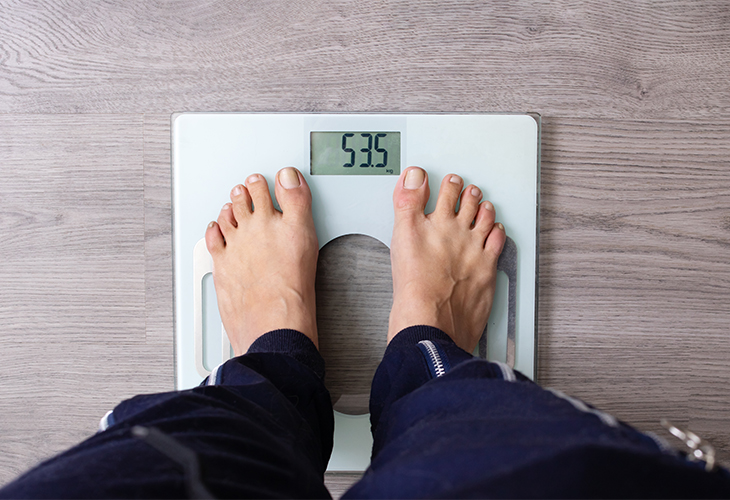Gaining weight can be as difficult for many people as losing it. Whether you’re trying to build muscle, recover from illness, or simply achieve a healthier weight, it’s important to approach weight gain with the right diet and mindset. A well-balanced weight gain diet focuses on increasing muscle mass rather than just adding fat, ensuring that you achieve a stronger and healthier body. If you’re looking for a natural and effective way to gain weight, this guide will help you get started.
Understanding Weight Gain
When you eat more calories than your body expels, you gain weight. However, it’s not just about eating more food—it’s about choosing the right kinds of food. To gain weight in a healthy way, your diet should include nutrient-dense foods that provide essential vitamins, minerals, proteins, and healthy fats.
Calories and Weight Gain
You must create a calorie surplus—consuming more calories than your body requires for maintenance—in order to gain weight. A safe and effective rate of weight gain is about 0.5 to 1 pound per week, which requires a daily calorie surplus of about 300 to 500 calories.
Macronutrients: The Building Blocks of Weight Gain
Your weight gain diet should focus on the three macronutrients: protein, carbohydrates, and fats. Each plays a crucial role in building muscle, providing energy, and supporting overall health.

Essential Components of a Weight Gain Diet
When planning your weight gain diet, it’s important to include a variety of foods that provide a balanced mix of macronutrients and micronutrients. Here’s what your diet should include:
High-Quality Protein
Protein is essential for muscle growth and repair. To gain muscle mass, it’s important to consume enough high-quality protein sources.
- Lean Meats: Chicken, turkey, lean beef, and pork
- Fish and Seafood: Salmon, tuna, and other fatty fish rich in omega-3 fatty acids
- Dairy Products: Milk, yoghurt, and cheese for additional protein and calcium
- Eggs: A complete protein source with essential amino acids
- Plant-Based Proteins: Beans, lentils, tofu, tempeh, and quinoa for vegetarians and vegans
Complex Carbohydrates
Carbohydrates are the body’s primary energy source. Focus on complex carbs that provide sustained energy and are packed with nutrients.
- Whole Grains: Brown rice, quinoa, whole wheat bread, oats, and barley
- Starchy Vegetables: Potatoes, sweet potatoes, squash, and corn
- Legumes: Beans, lentils, and chickpeas for fibre and protein
- Fruits: Bananas, apples, berries, and dried fruits like dates and raisins
Healthy Fats
The synthesis of hormones and general health depend on fats. Healthy fats are calorie-dense, making them a great addition to a weight gain diet.
- Nuts and Seeds: Almonds, walnuts, chia seeds, and flaxseeds
- Nut Butters: Peanut butter, almond butter, and other nut spreads
- Avocado: A nutrient-rich source of healthy fats and fibre
- Oils: Olive oil, coconut oil, and avocado oil for cooking and salad dressings
- Fatty Fish: Salmon, mackerel, and sardines
Calorie-Dense Snacks
Incorporate snacks that are rich in calories and nutrients to help you reach your daily calorie goals.
- Smoothies: Blend fruits, yoghurt, protein powder, and nut butter for a high-calorie drink
- Trail Mix: A mix of nuts, seeds, dried fruits, and dark chocolate
- Cheese and Crackers: A simple and tasty snack with protein and fats
- Greek yoghurt with Honey and Nuts: A nutritious and calorie-dense option

Tips for Healthy Weight Gain
Gaining weight doesn’t have to be complicated. With a few simple strategies, you can make the process easier and more enjoyable.
- Eat More Frequently
Instead of sticking to three large meals, try eating 5-6 smaller meals throughout the day. You can eat more calories with this method without becoming unduly full. - Incorporate Protein with Every Meal
Ensure that each meal and snack includes a source of protein to support muscle growth and repair. - Drink Your Calories
Liquid calories, such as smoothies, shakes, and milk, can add up quickly without making you feel too full. These drinks are an easy way to increase your calorie intake. - Focus on Nutrient-Dense Foods
Choose foods that are rich in nutrients as well as calories. Avoid filling up empty calories from junk food, as they provide little nutritional value and can lead to unhealthy weight gain. - Strength Training
Incorporate strength training exercises into your routine to build muscle mass as you gain weight. This ensures that the extra weight you gain is primarily muscle rather than fat. - Stay Hydrated
Drink plenty of water throughout the day to support digestion and overall health, especially if you’re consuming more calories than usual. - Be Patient and Consistent
Healthy weight gain takes time. Stay consistent with your diet and exercise plan, and be patient as your body gradually builds muscle and adds weight.
Final Thoughts: Achieving Healthy Weight Gain
Gaining weight in a healthy and sustainable way requires a well-planned diet and a commitment to regular physical activity. By focusing on nutrient-dense foods, incorporating all three macronutrients, and maintaining a consistent eating schedule, you can achieve your weight gain goals while improving your overall health and fitness. If you’re searching for “weight gain diet” tips, remember that the key is to be patient, stay consistent, and make smart, nutritious food choices.
Ready to take the next step? Start incorporating these tips into your daily routine and watch your body transform into a stronger, healthier version of yourself.

